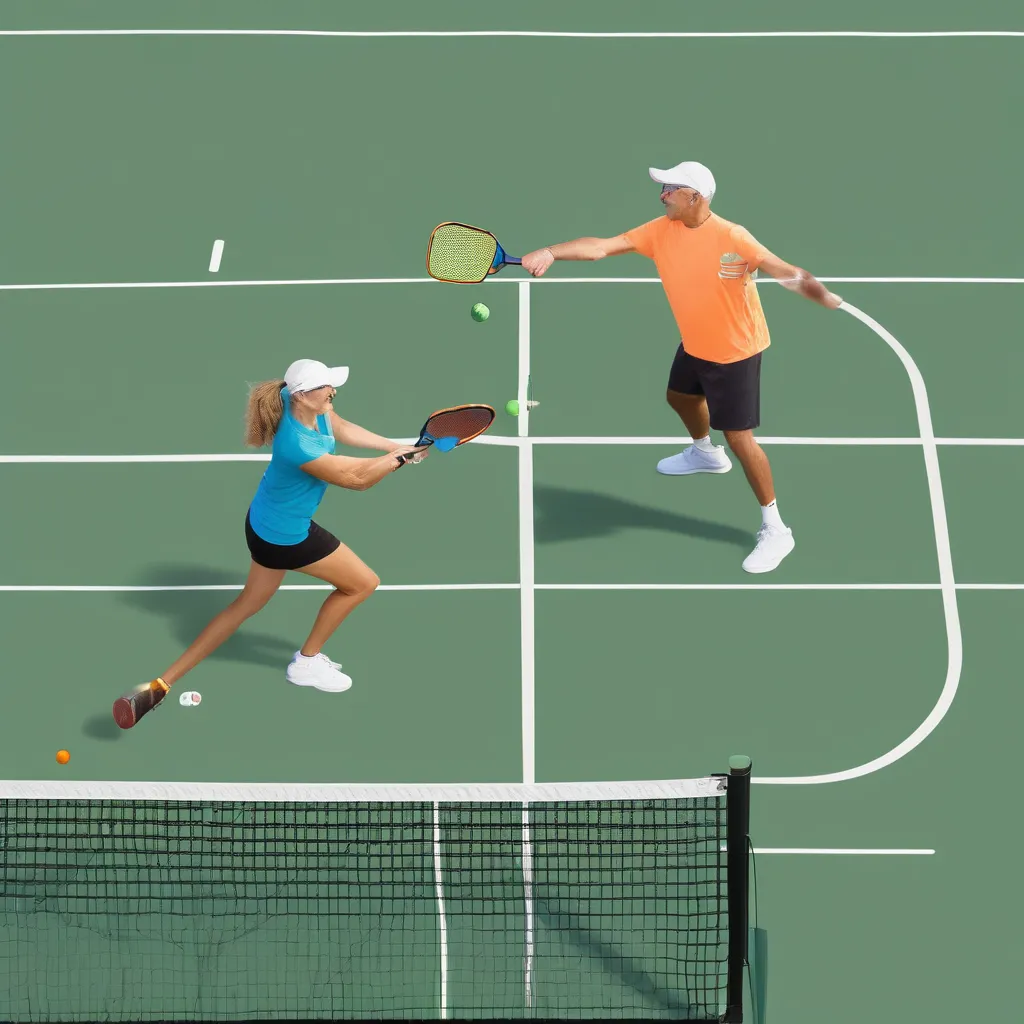Imagine this: You’re on the pickleball court, sun shining, the satisfying pop of the ball echoing with each hit. You’re playing doubles, and while your individual skills are sharp, something feels off. Communication is lacking, positioning is chaotic, and points are slipping away. This, my friend, is where the importance of strategic team dynamics in pickleball doubles comes into play. It’s not just about individual prowess; it’s about how well you and your partner function as a cohesive unit.
Understanding the Dynamics of Doubles Pickleball
Pickleball doubles requires a different mindset than singles. It’s a game of strategy, communication, and shared responsibility. Effective team dynamics are crucial for capitalizing on opportunities and minimizing weaknesses. This involves:
Communication: The Cornerstone of Success
Clear and concise communication is paramount. Calling out shots, signaling intentions, and offering encouragement are all vital for a successful partnership. Consider developing a system of coded calls for specific shots or situations. For example, “Mine!” clearly indicates who’s taking the shot, preventing collisions and missed opportunities.
Strategic Positioning: Covering the Court
Positioning in doubles is a dynamic dance. Understanding the “non-volley zone” (kitchen) and maintaining proper court coverage is crucial. A common strategy is the “third shot drop,” placing the ball softly in the kitchen to give your team an advantage. Practicing different formations and understanding each other’s strengths and weaknesses is key to maximizing court coverage.
Complementary Skill Sets: The Power of Synergy
A well-balanced team often comprises players with complementary skills. Perhaps one partner excels at the net while the other possesses a powerful serve. Recognizing and utilizing these strengths creates a synergy that elevates the team’s performance.
 Strategic Pickleball Doubles Formation
Strategic Pickleball Doubles Formation
Adaptability: Adjusting to the Opponent
No two opponents are the same. Being adaptable and willing to adjust your strategy mid-game is essential. If the opposing team has a strong net game, you might consider lobbing more frequently. Regularly assessing the opponent’s strengths and weaknesses allows you to exploit their vulnerabilities.
Building a Strong Pickleball Doubles Partnership
Developing a strong pickleball partnership takes time and effort. Here are some practical steps to enhance your team dynamics:
Practice Makes Perfect: Drills and Game Play
Dedicated practice is crucial for honing your skills as a team. Drills focusing on communication, positioning, and specific shots can significantly improve your coordination. Regular game play allows you to put these skills into practice and develop a shared understanding of each other’s playing styles.
Open Communication: Talking it Out
Regularly discussing your strategies, strengths, and weaknesses is essential for growth. Honest and open communication fosters trust and understanding, enabling you to address any issues and refine your approach. “One of my pickleball partners and I started having regular post-game debriefs, and it completely changed our game,” shares a seasoned pickleball player. “We’d discuss what worked, what didn’t, and how we could improve. It strengthened our communication and helped us develop a more cohesive strategy.”
Setting Goals: Aiming for Success
Setting clear goals provides direction and motivation. Whether it’s improving your communication, mastering a specific shot, or winning a local tournament, having shared objectives helps you stay focused and work towards a common purpose.
The Psychological Advantage: Confidence and Trust
Strong team dynamics contribute to a positive psychological state. When you trust your partner and feel confident in your shared abilities, you’re more likely to play your best. This positive mindset can be a powerful advantage on the court. A study on team dynamics in sports highlighted the importance of psychological safety within a team, leading to enhanced performance.
Learning from Mistakes: Embracing Growth
Mistakes are inevitable in any sport. The key is to learn from them. Instead of assigning blame, focus on analyzing what went wrong and how you can improve as a team. “Remember, every point is a learning opportunity,” reminds a pickleball coach. “Embrace the mistakes and use them as stepping stones to build a stronger partnership.”
Beyond the Court: Building Camaraderie
The benefits of strong team dynamics extend beyond the pickleball court. Building a strong partnership can foster camaraderie and friendship, adding another layer of enjoyment to the game.
Celebrating Success: Sharing the Wins
Celebrating successes, both big and small, reinforces positive behaviors and strengthens the bond between partners. Acknowledging each other’s contributions and sharing the joy of victory creates a positive and supportive team environment.
 Pickleball Doubles Team Celebrating a Win
Pickleball Doubles Team Celebrating a Win
Conclusion
The importance of strategic team dynamics in pickleball doubles cannot be overstated. It’s the foundation upon which success is built. By focusing on communication, strategic positioning, complementary skill sets, adaptability, and building a strong partnership, you can unlock your team’s full potential and elevate your game to the next level. So, grab your paddle, find a partner, and start building those winning dynamics! What strategies have you found helpful in improving your doubles game? Share your tips and experiences in the comments below!
- Bond, Payton (Author)
- English (Publication Language)
- Baker, Joe (Author)
- English (Publication Language)
- Anderson, Brian (Author)
- English (Publication Language)
- Carnot, Prem (Author)
- English (Publication Language)
- Palcic, Lisa (Author)
- English (Publication Language)
- Callahan, John (Author)
- English (Publication Language)
- Hall, Dennis (Author)
- English (Publication Language)
- Baker, Mr. Joe (Author)
- English (Publication Language)
- Foster, Blake (Author)
- English (Publication Language)
- Satka, David (Author)
- English (Publication Language)









